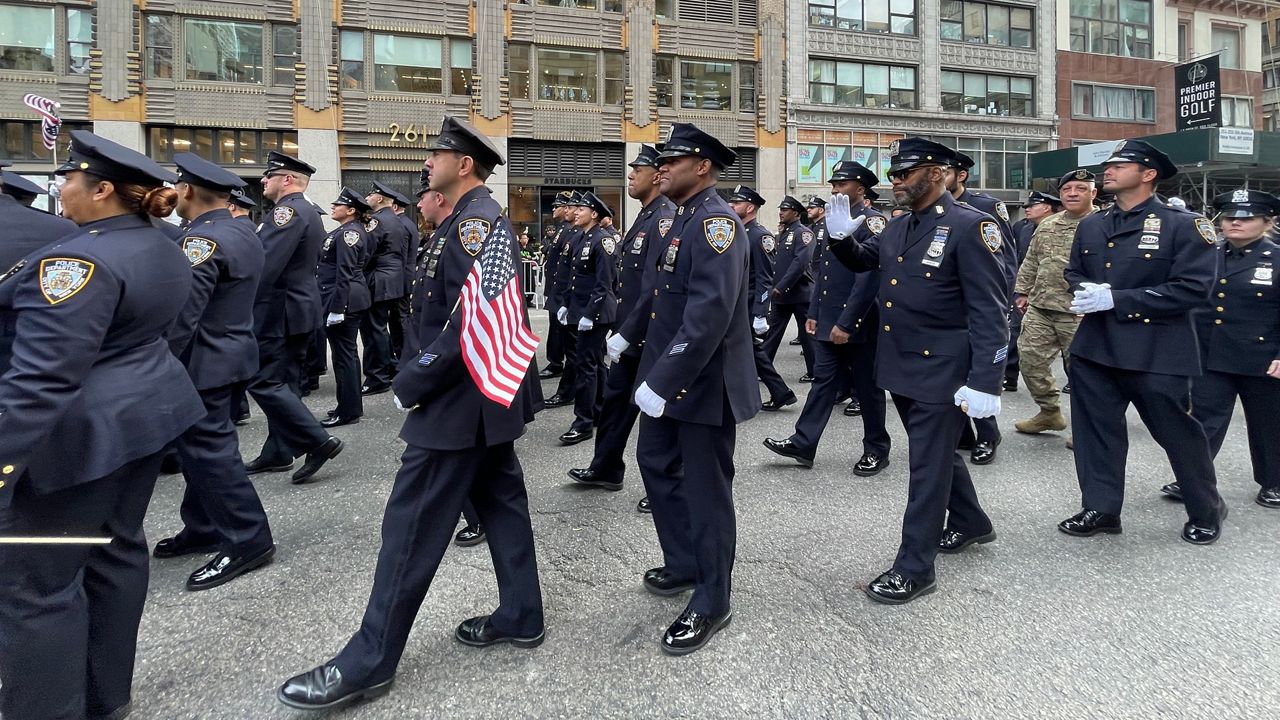Ghassen Tabbel is a personal trainer from Tunisia who moved to the U.S. almost a decade ago
“Watching the stuff on TV and coming here, I saw the people. I saw the culture in New York City. I fell in love with it,” he told NY1.
He overstayed his tourist visa and has been trying to get permission to stay legally ever since.
He applied for asylum based on religious persecution, but admittedly didn’t have a strong case. His court date was just as the pandemic hit, and it was canceled.
“I was happy it didn’t happen because there was a chance I could go back home,” he said.
Immigration court in New York City has been closed for more than a year now. There are remote hearings for people who are in immigration jail, but the bulk of the cases are for those non-detained.
Like Efrén Morales and his husband Armando Hernández García, who left Mexico almost two decades ago. They’ve been together for more than 30 years, fleeing persecution because they’re gay. Efrén says he escaped two rape attempts.
“We survived so many things together,” he said.
Now, Armando is recovering from a stroke and both of them lost their jobs in the pandemic. Efrén said he’s unable to get a full-time position anywhere because his status is up in the air.
"When you go and they ask you what’s your immigration situation, we don’t know what to say," he said about potential employers on job interviews. "We are in limbo."
“They have a very, very strong claim for asylum," their attorney Edward Cuccia told NY1. "So the court closures and court delays are setting them way, way, way back.”
Cuccia, a longtime immigration attorney, fears now it could be years before his clients' cases are resolved.
He’s not wrong. The average number of days to resolve a case in New York is 980, and the backlog keeps growing.
According to Syracuse University, 146,000 cases are pending in New York, 1.3 million nationwide.
“Now it’s just a tidal wave of un-adjudicated cases and these cases are just stacked up,” Cuccia said.
He estimates half his clients like Efren and Armando are frustrated by the delays, wanting to get their case resolved.
The other half are happy. Ghassen Tabbel is among them.
“Good things happened," he said. "I met my beautiful wife thanks to immigration taking their time.”
In the time after he might have already been deported if his last court date happened, he fell in love and got married.
“I want him to stay. I want to be with him forever, and that was that,” said Bradleigh Bleecker, his wife.
She’s an American Citizen, which potentially means an easier path to citizenship, paved in part by COVID-19-caused court closures.
“I hope that it’s an easy process for us and I hope that he gets to live out his American dreams,” she said.
“I am living my American dreams,” Tabbel said.









